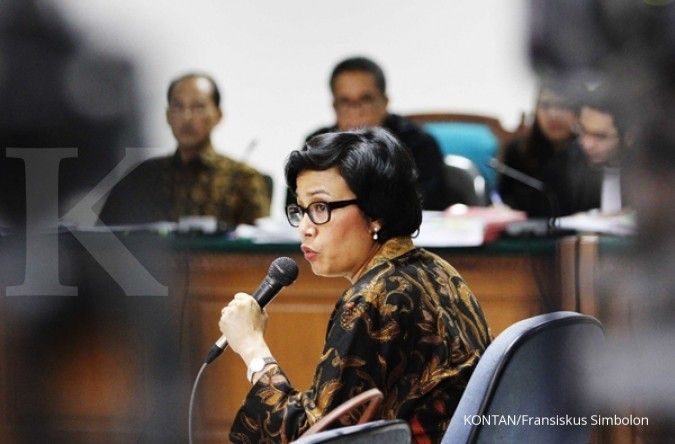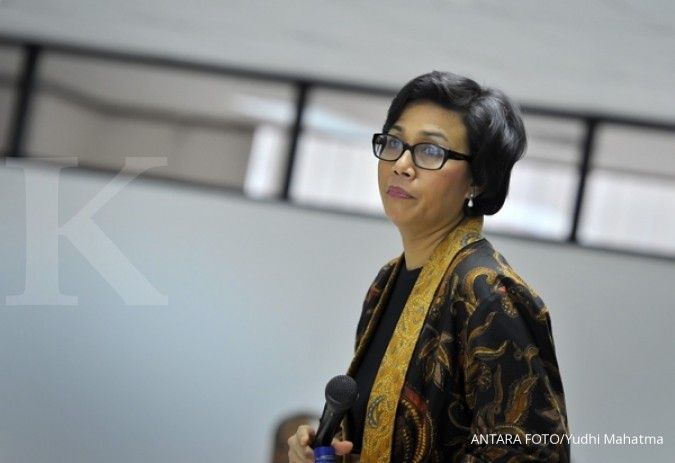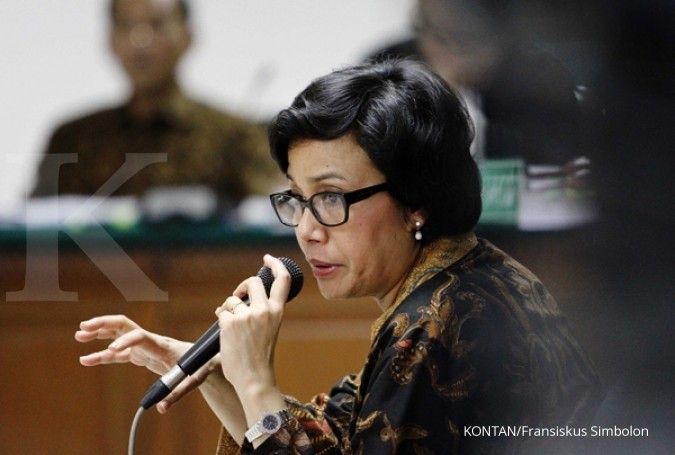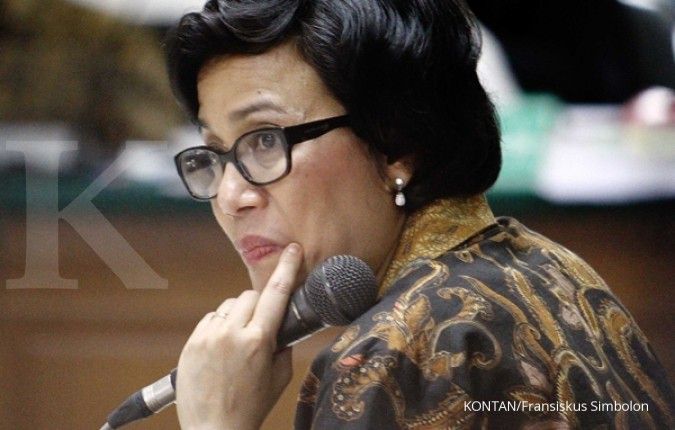JAKARTA. The National Police on Monday grilled World Bank managing director and chief operating officer Sri Mulyani Indrawati for 10 hours in an alleged graft case that has potentially caused state losses worth Rp 2 trillion (US$153 million) while she served as finance minister between 2005 and 2010.
Unlike other regular questioning sessions held at their headquarters, the police questioned Mulyani at the Finance Ministry building in Central Jakarta as she returned home from the World Bank headquarters in Washington, D.C., to fulfill the summons for questioning.
Amid recent revelations from Upstream Oil and Gas Regulatory Special Task Force (SKKMigas) chief Amien Sunaryadi regarding her possible role in the case, Mulyani denied allegations that it was her who instructed the now-defunct BPMigas to appoint PT Trans Pacific Pertrochemical Indotama (TPPI) as the buyer and seller of the state’s condensate in 2009.
Mulyani said that the government was aware that in 2009 TPPI had financial difficulty paying for the condensate, but it moved to allow the company to buy the product from BPMigas, the previous version of SKKMigas, after a deal was forged during a meeting held by then former Vice President Jusuf Kalla, in which she was not present.
"There was a meeting organized by Pak Jusuf Kalla on May 21, 2008, to discuss PT Petrokimia Tuban, and I was not present at the discussion," Mulyani said.
"The meeting also discussed how to save TPPI by asking [state oil and gas company] Pertamina to give the condensate to TPPI," she said.
According to Mulyani, the government moved to save TPPI because the majority of its shares were owned by the state.
"It’s about optimizing state assets, including TPPI, which is 50 percent owned by the state," Mulyani added.
When asked whether Kalla should be held accountable for the decision, Mulyani refused to comment.
Mulyani said that she had talked to Amein about his allegation that she might have played a role in the case, and that he later acknowledged that he had made a misjudgment.
"The Finance Ministry did not directly appoint TPPI [for the project as claimed by Amien]. The ministry was only issuing a regulation on how TPPI could pay the state for the condensate," Mulyani said.
Earlier, Amien said that the National Police should investigate why Mulyani had instructed BPMigas in 2009 to appoint TPPI to sell the condensate.
Between 2009 and 2010, TPPI collaborated with SKKMigas to market condensate in Indonesia.
However, the firm never paid profits from the sales to the government. Despite suspicions of foul play, SKKMigas continued to extend its contract with the firm.
Amien has defended the action, saying it was ordered by the Finance Ministry.
TPPI began selling the condensate despite the contract not being finalized until October 2009, after which BPMigas continued supplying condensate to the firm.
In its investigation, the police have found that TPPI should have paid Rp 2 trillion to the state. But instead the firm allegedly laundered the money.
National Police special economic crimes director Brig. Gen. Victor E. Simanjuntak has denied offering special treatment for Mulyani by questioning her at the Finance Ministry not at the National Police headquarters.
"For the sake of efficiency, given the fact that there are a number of important documents [on the TPPI contract that will be used during the questioning], there will be no problem if we question her at the ministry," Victor said.
Victor further said that it was Mulyani that had requested the venue for questioning. Mulyani said otherwise. (Haeril Halim)
/2014/05/02/1380818336.jpg)













